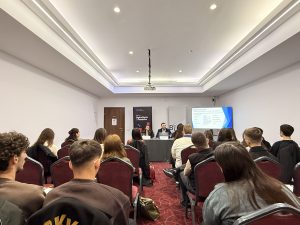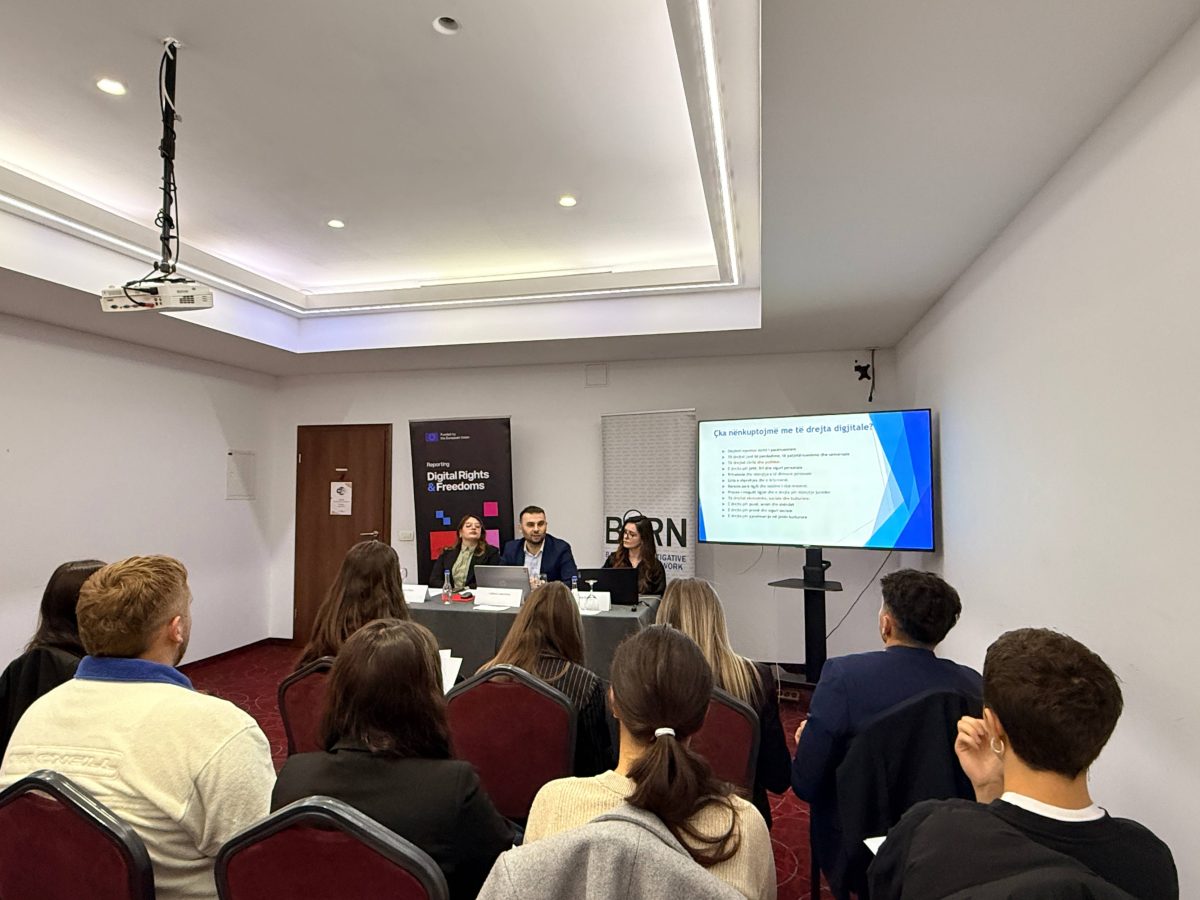The meeting opened with a presentation of the “Digital Rights and Freedoms” project implemented by BIRN Kosovo, so the participants could become familiar with the objectives and various activities planned under this initiative towards advancing and protecting digital rights.
Labinot Leposhtica, the Legal Office and Court Monitoring Coordinator at BIRN Kosovo, gave a presentation on the significance of digital rights, their scope, and how they can be protected. He stressed that digital rights are universal human rights, essential for ensuring privacy, freedom of expression and protection from online abuse. He also outlined the steps that individuals and institutions can take to uphold them, including reporting violations, promoting awareness, and implementing safeguards.
During the meeting, the Engaged Citizens Reporting (ECR) platform was presented by Xhorxhina Bami, editor and journalist at BIRN. Bami explained that the platform allows media outlets to engage citizens in reporting by enabling them to share concerns about specific situations while maintaining their anonymity. She highlighted that in one instance of reporting through the platform, only a single participant shared their contact information, underscoring the hesitation many individuals feel in coming forward to report a case.

One key aspect of this meeting was collecting stories from the participants, who shared their personal experiences and cases they had identified as breaches of digital rights. These included unsolicited electoral messaging, misuse of personal data through social media campaigns, unauthorized sharing of children’s information and spam on social media platforms, illustrating the real risks of privacy violations.
The discussion highlighted the complex challenges journalists, professionals, and citizens face in protecting digital rights amid widespread social-media misuse and online groups that violate privacy and exploit identities, particularly of women and minors. It was emphasized that online abuse, including fabricated content, constitutes a form of gender-based violence and can have serious psychological effects on the targets.
A total of 19 participants attended the meeting, 13 of whom were women. They called for stronger institutional coordination, school-based education, stricter regulation of harmful applications, GDPR protections, informed parental consent, and stronger technical safeguards.
This meeting was organized within the framework of Digital Rights and Freedoms, implemented by BIRN Kosovo and supported by the European Union.





